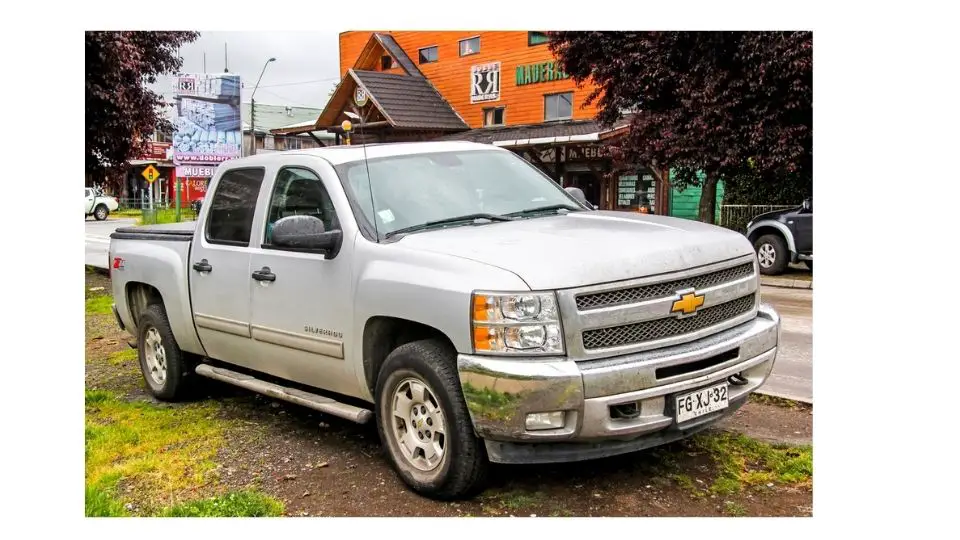Chevrolet trucks remain one of the most reliable machines produced by the General Motors Company. A vehicle engine needs to respond to the gas pedal input accordingly, more so when building up speed or overtaking. The Chevy truck comes tops on these fronts.
Despite the high-level efficiency and reliability of the Chevy machine, it also experiences challenges like all other vehicles. One such problem remains to be the loss of engine power significantly when accelerating.
You often start preparing for an extensive and costly repair only when you encounter motor capacity losses as a motor vehicle owner. However, you need to find out the underlying issues surrounding your machine problem. Equipped with answers, you will significantly minimize your repair costs.
In short, The primary reasons why your Chevy truck may lose power when accelerating include low engine compression, clogged fuel or air filter, and a faulty fuel pump, among others.
This article provides comprehensive information you need on power loss challenges your Chevy truck might encounter and the best ways of fixing them
The Vehicle Accelerating Mechanism
To identify your Chevy truck power issues, you need to go back to the drawing board and review the basics of motor vehicle acceleration. Significantly, the throttle remains connected to the intake manifold and controls the amount of air that the engine can suck.
When the engine sucks the air, fuel mixes with it. Then, a spark causes the mixture of fuel and air to explode powerfully. Additionally, pistons work in a rhythm. Some get pushed down to rotate the crankshaft, while others go up to compress the fuel-air mixture.
Therefore, the harder you press the throttle, the more air will get into the engine. Notably, the air-to-fuel ratio remains the same per ignition. Because it is happening at a faster spinning rate, the crankshaft moves many times per minute, resulting in a higher revolution.
The primary function of a vehicle engine remains running, and by extension, accelerating. Furthermore, it involves the entire engine system in its operation. As such, you will find that diagnosing engine problems sits as one of the most difficult challenges you will face as a vehicle owner.
However, if you observe the symptoms keenly, you can rule out the causes and eventually end up with the actual problem at hand
6 Top Reasons Why Your Chevy Truck Loses Power When Accelerating
As a Chevy truck owner, you need to get accustomed to how your machine works. It will readily help you notice anything awkward that will prompt you to observe your truck more carefully to locate the problem.
Here are some areas you need to check out in case your machine develops power loss issues during acceleration:
1. Bad Fuel Pump
A fuel pump works by taking gasoline from the fuel tank transferring it to the truck’s engine. Thus, the fuel pump must move the right fuel and equally send the appropriate pressure.
If the fuel pump malfunctions, it leads to performance issues like your truck engine losing power suddenly. Also, if the engine clogs, it decreases the gasoline throughput, causing problems in the power unit.
Wear and tear cause fuel pump damage as well. Additionally, pumps are damaged through contamination occasioned by using foul gases. Clogged filters and running the fuel tank very low remains another cause of fuel pump damage.
Symptoms of Chevy Truck’s Fuel Pump Failure
- When your engine experiences a problematic start or does not start at all.
- When your fuel pump misfires.
- When your Chevy truck surges while you are driving.
- When your Chevy truck engine demonstrates an implicit lack of power.
Solution To the Fuel Pump Problem
Fuel pump replacement can be costly, and you may spend up to $90 to replace one. Still, if you’re unable to replace it, you will incur extra costs on labor for hiring an expert.
Replacement cost consideration may make you opt to seek periodic oil filter replacements. Also, make a habit of checking fuel pressure as it determines whether the fuel is bad or not.
Still, an oil filter resembles a small cylindrical air filter, always placed inside a transparent metal box. The transparent box allows you to readily inspect the conditions of the filter at any given time. More significantly, oil filters remain inexpensive compared to replacing the fuel pump.
2. A Faulty Fuel Injector
The fuel injector is the component that sprays fuel into the Chevy truck’s engine where combustion occurs. Significantly, if the fuel injector suffers damage, your Chevy truck’s engine won’t receive an adequate amount of fuel for its work.
Fuel Injection Failure Symptoms
- If you notice misfiring cylinders.
- The appearance of rough idling.
- When you realize you’re spending too much on gas mileage.
- You experience difficult starts to the engine.
- A glaring lack of power and acceleration
Solution To the Injection Failure Problem
Your first reaction to injection failure needs to be cleaning the clogged fuel injector. To do so, use a fuel injector cleaner. If cleaning the injector does not work, you may need to consider replacing the fuel injector. The market price of a new fuel injector stands at between $100-$300
3. Truck’s Oxygen Sensor Failure
The work of your vehicle’s oxygen sensor remains to measure the amount of exhaust emitted into the environment. This measurement value determines if the machine needs more oxygen for optimal performance.
Therefore, a faulty oxygen sensor will churn out incorrect data readings. Additionally, inaccurate data can be detrimental to the ECM, preventing it from determining the correct fuel mixture ratio. The malfunction will make your Chevy truck keep losing power, making it difficult for you to drive.
Oxygen Sensor Failure Symptoms
- Start by checking your engine light.
- Use of more engine fuel.
- Check rough idling.
- Low general machine power and low acceleration.
- Engine misfires.
Fixing Your Oxygen Sensor
If you find out that your oxygen sensor is damaged, you will need to replace it with a new one. You will spend close to $100 to get a new sensor. Additionally, you need to appreciate that some oxygen sensors may prove difficult to replace due to their locations. As such, you may need the advice or services of an expert to replace it.
3. Low Engine Compression
Adequate cylinder compression during the combustion process makes your engine run well. If your machine undergoes low cylinder compression, the vehicle power will go down; hence your Chevy truck will lose engine power when accelerating.
Symptoms of Low Cylinder Compression
- Acute power losses. Difficult engine starts.
- Chevy truck’s poor overall performance.
- Engine misfirings.
Fixing Low Cylinder Compression
Low engine cylinder compression may arise due to holes in pistons, faulty head gaskets, damaged camshaft, and leaking valves. To fix the issue, you will need to diagnose the Chevy truck to find out the part causing the problem.
You can achieve that by performing a professional compression test. Only embark on solving the problem after conducting a thorough diagnosis of your truck’s engine; it helps you avoid guesswork.
5. Fuel Filter Challenges
The fuel filter is found between the fuel pump and the injectors. Its role remains to filter the engine fuels of all impurities that can harm the Chevy truck’s engine. Clogged or dirty fuel filters malfunction, giving rise to acceleration problems when driving. Still, a faulty fuel filter allows contaminants to enter the engine, causing other engine problems.
Symptoms of a Faulty Fuel Filter
- Difficult engine starts. Engine rough idling.
- Sudden engine stops when driving.
- Poor acceleration power and general truck performance.
Solution To Fuel Filter Issues
The Chevy truck’s fuel filter is cheap, and you can get it for as low as $10. Always change your fuel filter periodically for proper machine maintenance. Notably, replacing the fuel filter is easy, and you can change it quickly.
6. Clogged Air Filter
Air filter, another component of your vehicle engine that clogs and causes engine damage, needs constant checking to ensure it works properly.
Air needs to enter the engine’s combustion chamber before mixing with the engine fuel. It will have to pass through an air filter on its way to the combustion chamber.
During this process, the filter will eliminate all impurities and contaminants in the air that, if allowed into the engine, causes severe issues.
Faulty Air Filter Symptoms
- A filthy air filter on inspection.
- Inappropriate air to fuel ratio in the combustion chamber.
- Low engine power and acceleration.
- Extremely dark smoke emitted from the exhaust pipe.
Fixing Clogging Air Filter
Cleaning a clogged filter is possible, but not always. Luckily, it’s one of the cheapest engine components, and it won’t cost you much to replace it; you can acquire one at around $15-$25.
Conclusion on chevy truck sluggish acceleration
If your Chevy truck exhibits power loss and acceleration issues, don’t hesitate to take action. Diagnose it to determine the cause of the problem as soon as possible. Afterward, fix the problem as delaying will cause severe engine challenges that may be too costly to solve. Always maintain your Chevy truck in good condition to avoid engine power losses during acceleration.

Tomas is a retired Chevy Auto Technician that brings decades of hands-on experience and expertise to the table. He’s also a father to two incredible daughters. He enjoys using his knowledge and experience to help you solve and find reliable information on Chevrolet vehicles. Whether it’s troubleshooting engine problems or providing tips for maintenance, Thomas is committed to helping Chevy owners keep their vehicles running smoothly and safely.



